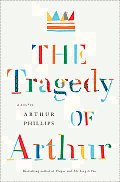
Imagine I said this about any novelist of the last 200 years: "X is one of my all-time favorite writers. I think X is fantastic. I love most of X's stuff. It's not all perfectly to my taste, of course; some of it is badly constructed, forced, misses the mark, even lazy, because some times it seems X was just going through the motions for the money, but, that said, I like the best of X's stuff as much as almost anyone's. X is definitely in my top-five, desert-island, reread-as-I-am-on-my-deathbed list. I associate some of X's best work with the best moments of my reading life."
For almost any writer, living or dead, I cannot imagine higher realistic praise from a serious reader than this. except if X is William Shakespeare. Let X=Shakespeare, and my praise seems somehow insulting to him, reveals depths of philistine idiocy in me. Oh really? Shakespeare is one of your favorites? How sweet.
We have set him up for something more than this. He is in his own category, a god, the greatest not just of his time but of eternity, objectively more important, more wise, more influential, more far-sighted, more eloquent, than any other human who ever lived. We take him to be basically flawless as a writer, a philosopher, a thinker. He is, as his first blurber wrote of him, "for all time." (Oh, yes, it was a blurb, a publishing industry requirement, even in 1623, with the same mixed motives, the same impure origins as many another blurb provided since then.)
I don't want to take time and space to go into why this description of him is false (of him and of every other human who ever wrote anything), or why it does him no favors with people now, or why I personally find it both irritating and harmful. Instead, I just want to point out a few facts to get under your skin.
At the time he was alive, and for 150 years after, Shakespeare was considered one of many. Some of his peers rated him highly, some less so. Some praised him for writing well, some merely for writing a lot. Some liked his comedies, some his tragedies, some both, and some neither. Even when he was the head writer for the most successful stage company in the country, his plays weren't the only ones people wanted to see. And, finally, the field in which he worked ? theater ? was not a high-class, high-prestige, high-culture world. It was not where the "great writers" worked, as judged by the sort of people who judged that sort of thing (and do so still). His theater world was very much analogous, prestige-wise, to TV writing or film writing today. Who's the greatest screenwriter of our time? Who's the highest-paid, or the one with the most Oscars? Who has created the most deeply ground-breaking television? Go ahead, pick your favorites for any of those questions, and you have come closer to knowing how people in Shakespeare's day viewed him. Take it easy, I am not trying to undermine him or say he is no better (or worse) a writer than David Simon, who created The Wire, or David Milch, who created Deadwood, or David Chase, who created The Sopranos. I am trying to say that he was playing in the same approximate cultural ballpark as these three Davids.
Now. Fast forward to 2411, when, among many other entertainments, humans still watch 21st-century TV shows, or at least a very few of them. It's an elitist entertainment, to a certain extent, but its practitioners and students think very highly of it, and while PhDs and fetishists still talk about Chase or Milch, most highly educated people say things like, "David Simon was of another world from those men. They admired him, imitated him, wished they were him. Nobody has ever come close in the last four centuries to producing work that so profoundly and eloquently explains what it means to be human, and nobody ever will."
The comparison is not perfect, I know. But it's not too far off. And, I would just like to add, in conclusion, that for me, if in my new book, The Tragedy of Arthur, I am "saying" anything at all (see Tuesday's entry), it is only this: let X=Shakespeare.